Since the 80s and 90s, Taiwan has seen multiple generations of indie bands, each contributing to the thriving scene on the island. In 1998 the early punk group Ladybug toured with Yo La Tengo in the United States, the first Taiwanese band to do so. Now, touring abroad has become much more common for Taiwanese bands, with the Taiwan Beats showcase at SXSW bringing acts like Elephant Gym and The Fur. to overseas audiences. But there’s a deep wellspring of music to explore, and such appearances aren’t enough to fully display the talent and creativity of Taiwanese bands. This article aims to remedy that. And while it’s impossible to encapsulate the entirety of the scene in such a list, here are 10 bands in Taiwan that you should know:
Bob Is Tired
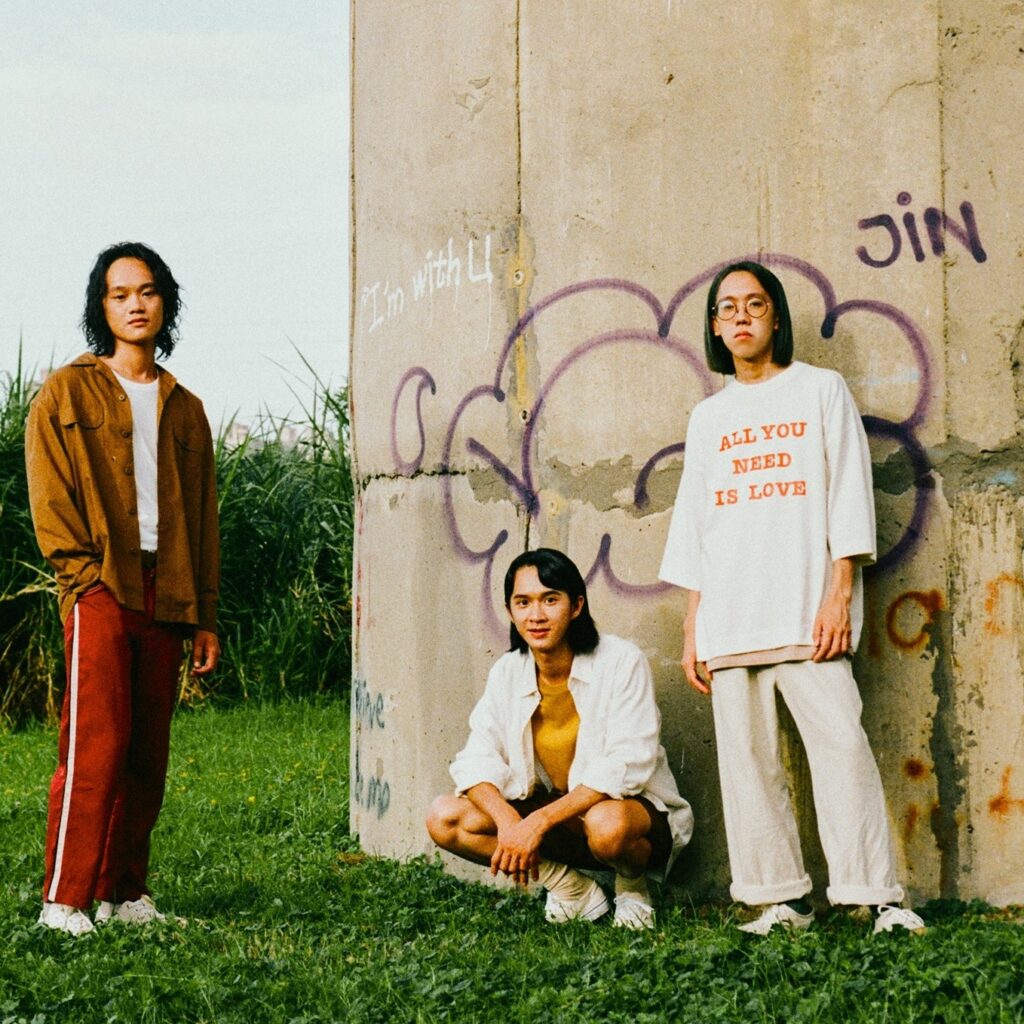
Formed in 2018, Bob Is Tired plays a sprightly mishmash of indie pop, grunge, and Japanese punk. Influenced by their eclectic listening habits, their self-titled debut album features jazzy saxophone solos alongside straightforward rock ballads. Bandleader “Bob” Wu Si Cen began listening to well-established Taiwanese bands like Touming Magazine, Freckles, Midnight Ping Pong, and Sunset Rollercoaster while in college, and that lineage shows in the album’s lyrical content, full of youthful angst and malaise. Other members are fans of jazz, funk, and a slew of other guitar-based genres, making for an exciting mixture of interests that bodes well for the band’s future.
Iruka Porisu
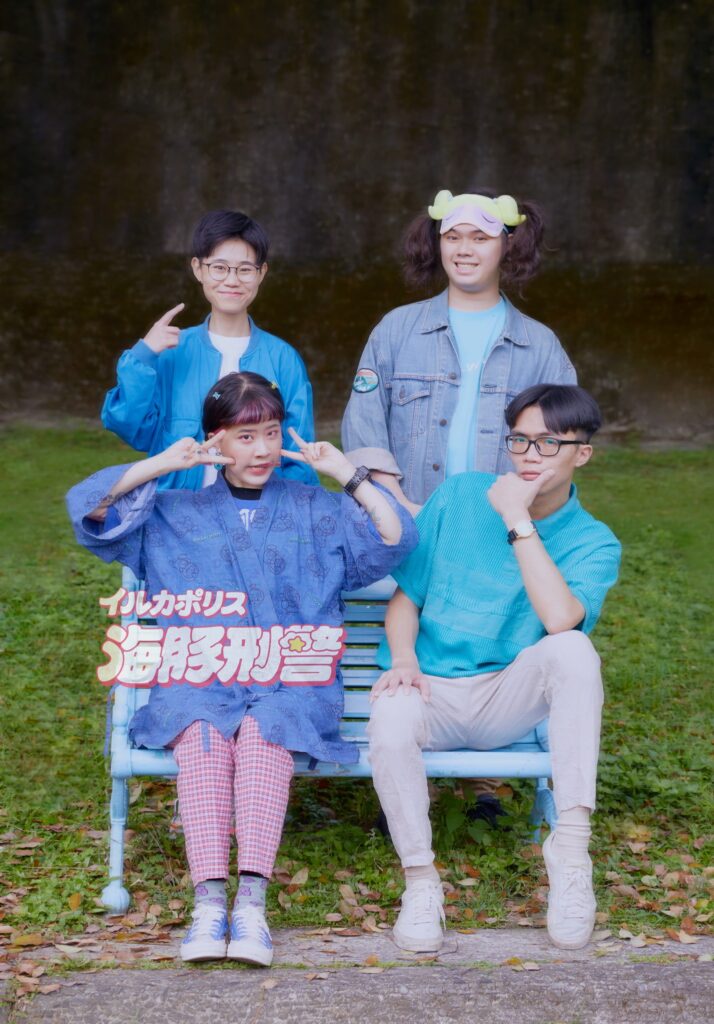
It’s hard to overlook Iruka Porisu. With their flamboyant costumes, flashy album design, and humorous social media presence, the band’s positive energy is infectious. After releasing their 2019 debut album Call Me When Night Go Blue, they rode a wave of popularity that took them to a well-deserved Golden Melody Awards nomination for Best Band. When they take the stage, expect to see a roiling crowd of fans singing along to their indie pop anthem “Lights of Anping”. Other songs, like “Tell Me I Was in Your Dream” feature bright chiptunes alongside dream poppy guitars. Lead singer Marko Woo’s goofy sense of humor matches her twee vocal delivery, but don’t be fooled: these dolphins can rock out.
Prairie WWWW
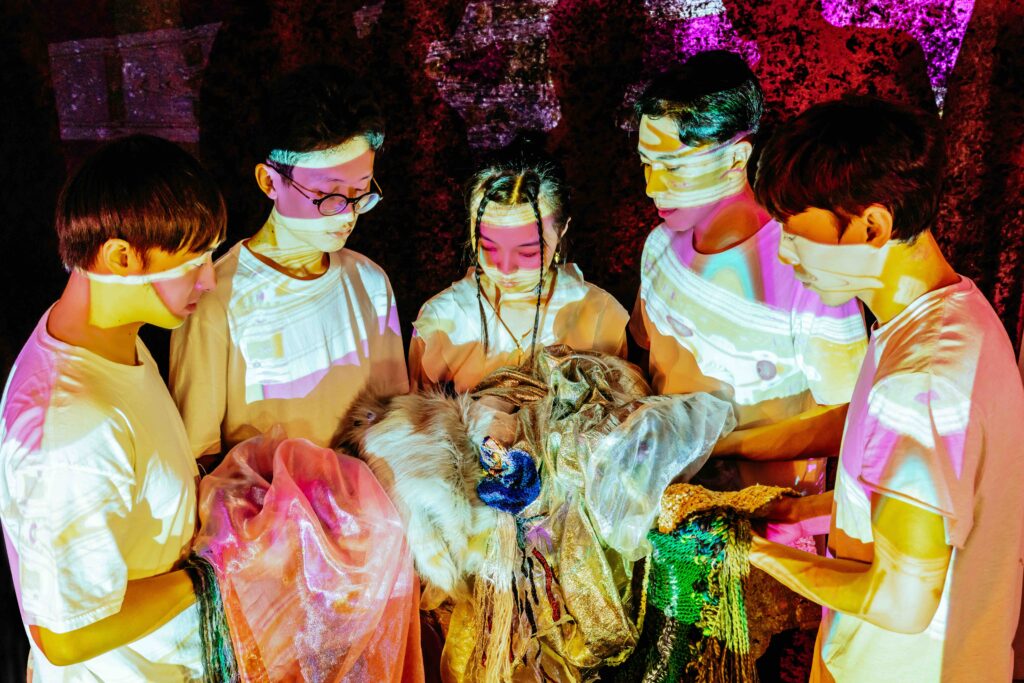
This five-piece from Taipei has been recognized internationally for their unique blend of Taiwanese folk, electronic, and experimental rock. Their Audiotree recording encapsulates the band’s artistic vision: arranging their synthesizers, instruments, and bodies in a circle at an old courtyard, their performance is at once ceremonial and iconoclastic, melding the old and the new. Their academic and heady approach to music is evident in their English band name: “WWWW” is a visual representation of a waveform as well as a field of grass blowing in the wind. In 2019 they collaborated with math rock stalwarts Battles for “Sugarfoot”, a natural crossover given Prairie WWWW’s masterful facility with electronic, microrhythmic textures.
Super Napkin
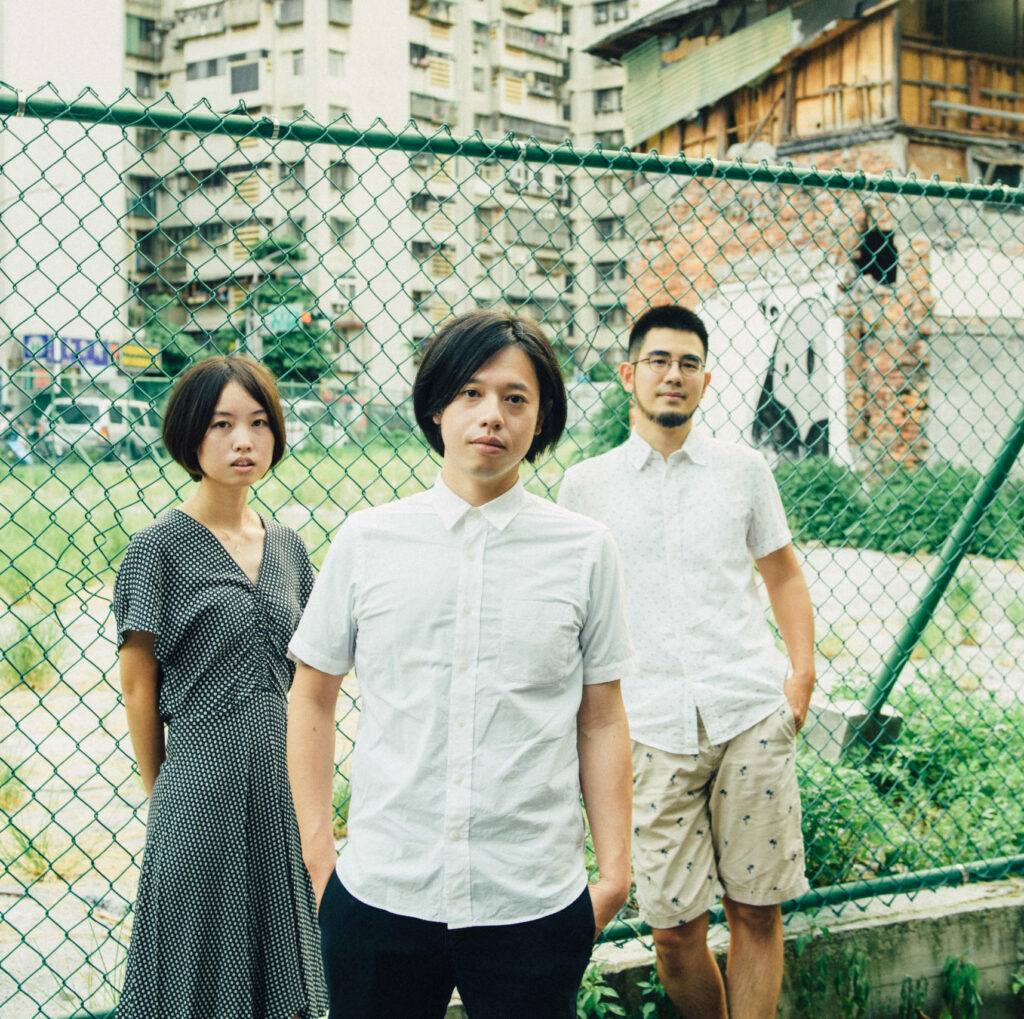
Though they released their first album in 2016, fuzz pop trio Super Napkin are not newcomers to the scene. Self-described 80’s kids who grew up sharing music on Soulseek, the band takes influence from indie legends like My Bloody Valentine, Pavement, and Sonic Youth. With Yau on guitar, alongside his wife Weiting on bass and Shih on drums, Super Napkin’s sound is an ode to the 90s. Yau’s been at it since the 2000s with the long-since defunct band Slow Burning Machine, among a slew of other projects leading up to Super Napkin. With English lyrics and biographies floating around the Web, they’re an easy entry point to Taiwanese indie for the international listener.
Elephant Gym
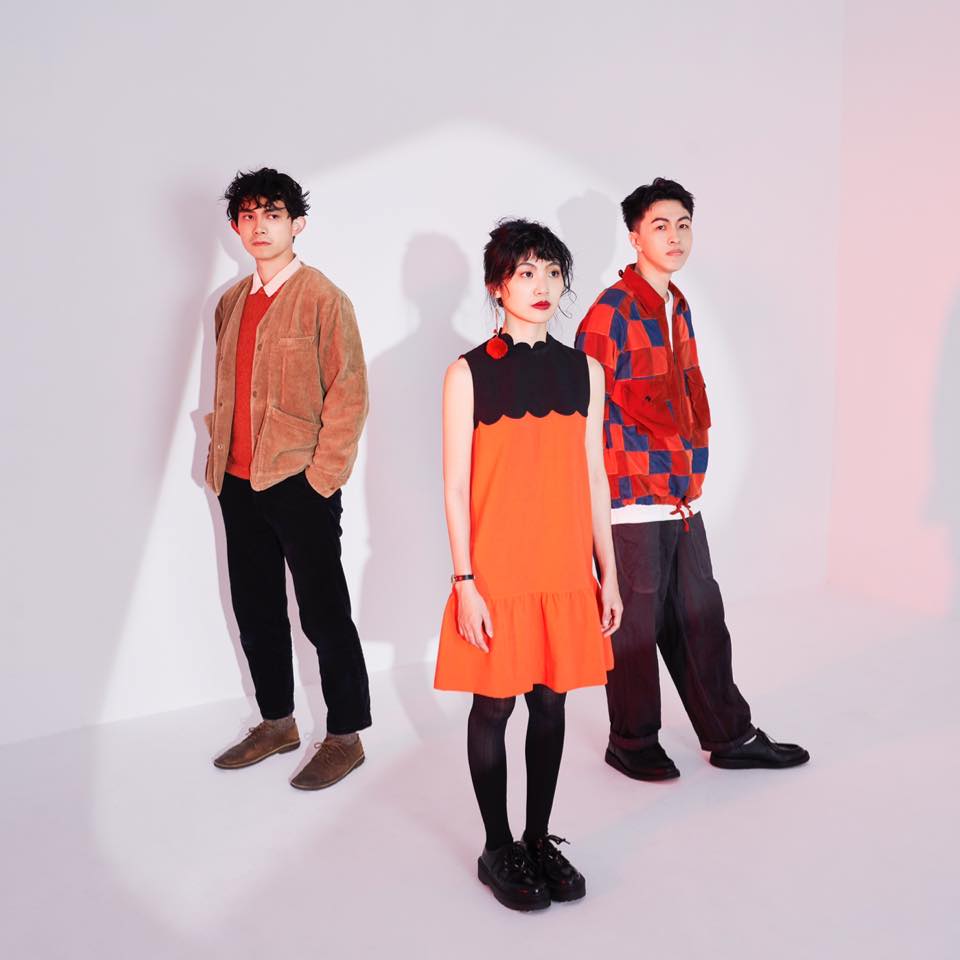
Elephant Gym almost needs no introduction: they’ve toured worldwide and have become household names in the world of math rock. Their virtuoistic compositions are as meticulously constructed as they are easy to mosh to, and they hardly miss a beat during a live performance. Two years ago they were tapped by Tyler, the Creator to play Camp Flog Gnaw 2019; their bass-heavy music fit right in alongside hard-hitters like slowthai and Thundercat. Most recently, they reworked legendary Japanese math rock band toe’s song “Two Moons”; Elephant Gym’s rendition, titled “Go Through The Night”, swaps twinkly guitar for thick basslines and pulsating drums.
Go Go Machine Orchestra
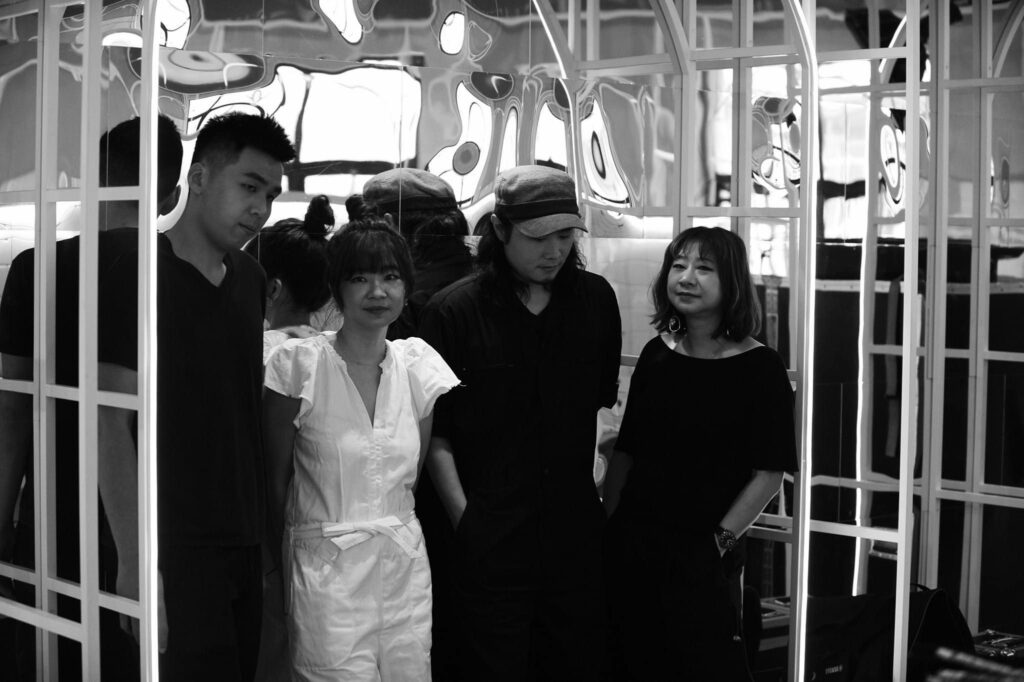
Another Kaohsiung-based group, Go Go Machine Orchestra is perhaps more popular in Europe than they are in their hometown. Purveyors of minimalism a la Steve Reich, Tortoise-esque post rock, and modular synthesizer improvisations, GGMO defies genre. Their KEXP performance, recorded just before the COVID-19 pandemic hit full swing, demonstrates the sheer musicianship that each member brings to the table. GGMO has seen a lineup of adept musicians including pianist Tang Ni-li, guitarist Morrison Wu, percussionist Yeh Ting-chun, and synth player Wang Pin-hsin. Notable members who have since left the band include modular synth enthusiast Madzine, and Lee Mao-Sung, formerly of legendary Kaohsiung band Fire EX.
Mong Tong
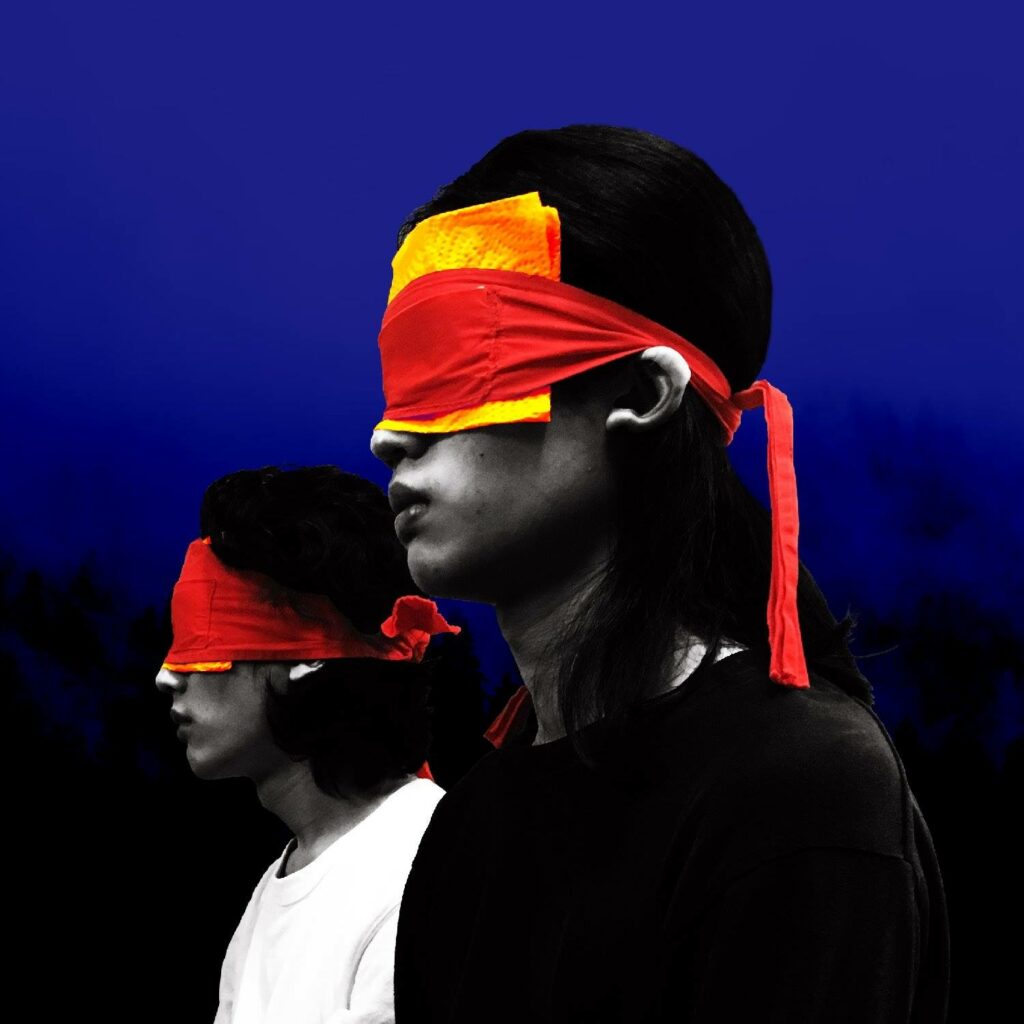
Mong Tong are perhaps described best by the title of their latest album: Mystery. In press photos, the brothers Hom Yu and Jiun Chi sport red blindfolds, shielding the windows to their souls. The alleged third member, credited as “仝”, is apparently anonymous. Their psychedelic pop music is a musical match to their fascination with the occult. With a process as meticulous as their lore, Mong Tong sculpts their music by sampling the raw material of their jam sessions. The result is transcendent, from the four-on-the-floor dance beat of “A Nambra” to the unnerving rhythmic bassline of “Chakra”.
Non-Confined Space
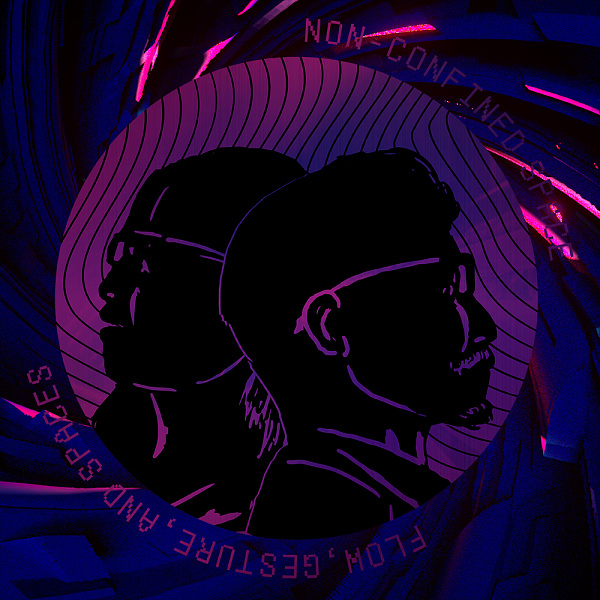
Cheng Ge-chun and Minyen Hsieh comprise Non-Confined Space, an electronic music duo that heavily features improvisation in their tracks. Cheng, whose primary project Sonic Deadhorse is a potpourri of electronic music styles from dubstep to chiptune, provides the beats and guitar work for the duo, while Hsieh’s saxophone and woodwinds round out the tunes. A truly multimedia project, Cheng also provides live visuals during their inimitable performances. Their diverse influences are on full display in their track “Serotonin Cell”, jumping from an Afrobeat groove to a dubstep breakdown to a Jersey club beat at half time.
Windmill
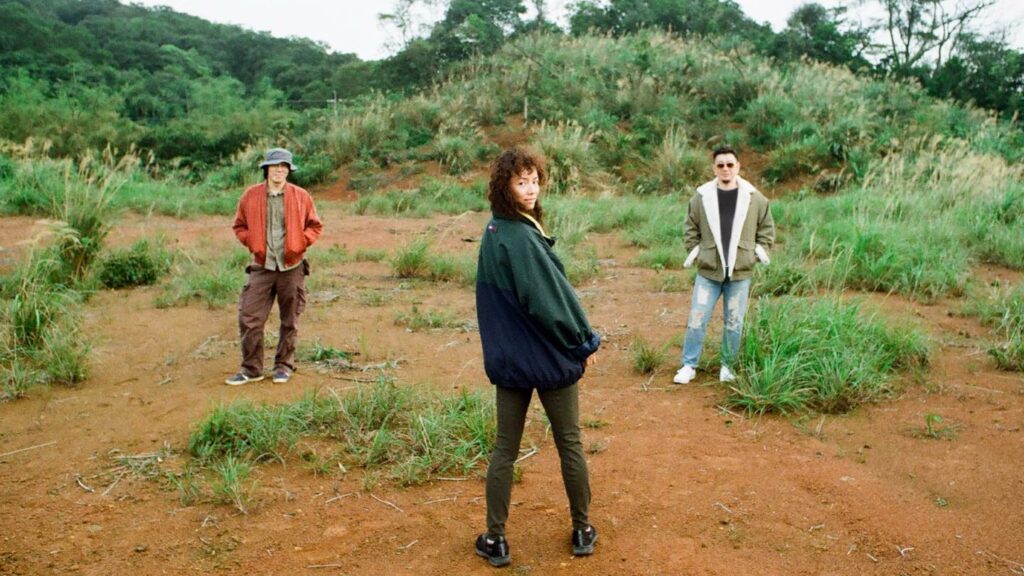
Recently reunited in 2019, Windmill released two albums in the late aughts and then took a six-year hiatus while recording their third. Their latest album Demo III is the product of those years, a nostalgic look back at the 90s indie rock canon. Released 12 years after their last album, Demo III is a triumphant return, and their album release party was just as celebratory. Featuring members of Green!Eyes, Easy Shen Gang, Valley Hi!, Heat Sketch, Sorry Youth, Wayne’s So Sad, and other significant bands across the Taiwanese indie scene, the performance at The Wall was one for the ages.
The Peppermints
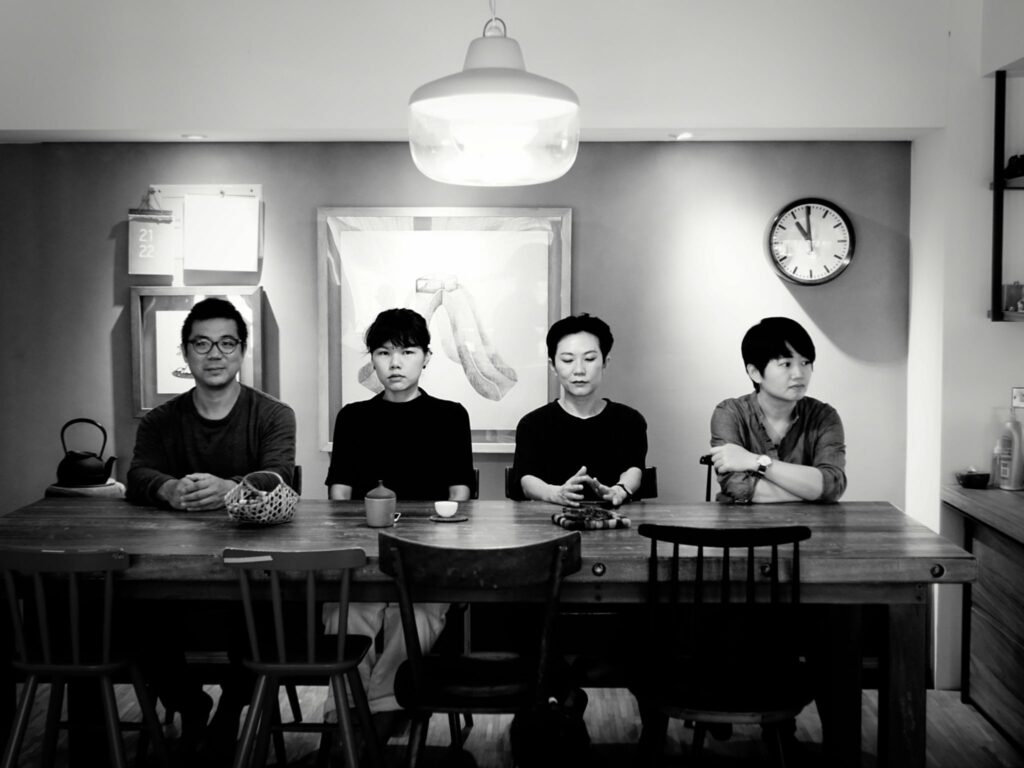
True veterans of the indie scene, The Peppermints formed in 1998 at Chinese Culture University. In 2011, they went on a 7-year hiatus, returning to the stage in 2018. Their sound is emblematic of the early Taiwanese indie scene: a lo-fi mixture of noisy pop and punk sounds, perfect for fans of Britain’s Heavenly. Their song “1979” is a cathartic and bittersweet shoegaze ballad, made for crooning along to in your room while you nurse a broken heart. Recently re-releasing their discography on digital distribution platforms, the band has made available a vital archive of Taiwanese indie music history. And just this past spring, the band put out a live video with CINEMAPHONIC SESSIONS, hinting at things to come.


























